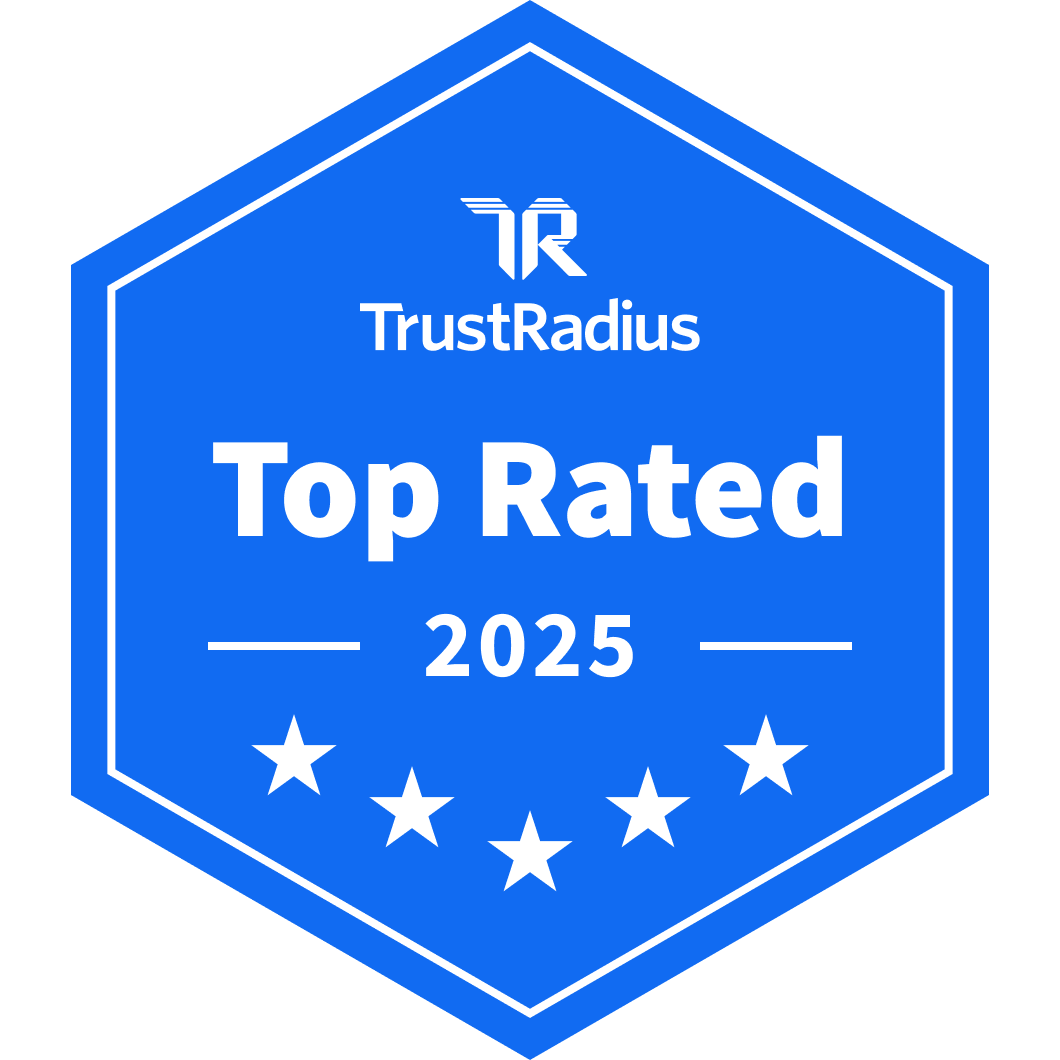
Save time and empower your finance team with Tipalti. The most complete AP solution loved by 5,000+ businesses.
Financial management is often the primary factor separating a successful company with growth and eventual profitability from a struggling one. Excellent financial management is the key to running your business processes like a well-oiled machine, no matter the size of your organization or what industry it’s in.
You’ll discover many cloud-based platforms and financial management tools that any business can use to its advantage.
We have compiled the following list of financial management software and CFO tools that every manager or business owner should consider. Automation tools will give your company’s finance team more time to shift to strategic finance initiatives.
What is Financial Management Software?
Financial management software is used to invoice and record revenue, costs, expenses, assets, and liabilities and control spending and profitability. It includes transactions, inventory tracking, dashboards and reports, financial statements, forecasting, budgeting, and financial planning and analysis.
What to Consider When Researching Financial Management Tools
Your selection of strong business tools depends on several related considerations listed below. Think about them carefully before deciding on a set of financial tools.
- Balancing your budget. How much are you willing to budget toward these financial software systems? Depending on the scale of your operations, you may deploy more integrated platforms and tools, and costs vary.
- Keeping your business secure. As financial matters transition away from paper to online platforms, companies must manage access to sensitive financial information on digital records. Businesses of all sizes need a financial management tool with granular roles for access control.
- Ensuring future scalability. A financial management tool must evolve with the needs of your business to avoid the costly hassle of converting to a new system when you outgrow your current software.
- Switching to the cloud. While some organizations use on-premise financial management to have full control over their processes, others opt for a cloud-based approach so that all records and workflows are available at any time. This unparalleled flexibility could boost your company’s success rates in the digital age.
- Achieving automation and efficiency. Cloud-based financial tools will save your finance team time and money. Choosing companies like Tipalti for finance software will consequently modernize your financial processes and boost the efficiency of purchase requisitions, purchase orders, invoice processing, approval hierarchies, and global payments as your business evolves.
- Adding AI technology. AI in finance assists with automatic general ledger coding, digitization of invoices with OCR, error detection, approver prediction, and analysis.
Let’s talk about some of the most popular financial management tools that companies of all sizes use, as well as some related CFO platforms.
Top Financial Management Tools
Business finances can be complicated and intimidating, but the right financial management tool can make it a whole lot easier to digest. These integrated systems can help transform specific parts of your business and focus on what needs to be optimized.
1. Tipalti (Spend Management)
Tipalti finance automation software includes a unified platform of spend management tools that automate financial processes for efficiency and improve visibility into spend operations. It’s easy to use and integrates with existing Enterprise Resource Planning (ERP) solutions. Tipalti is the ultimate business partner when it comes to financial management.
Working with companies like Tipalti allows businesses to integrate and streamline many of their financial operations and modernize everyday business. Tipalti finance automation software includes AP automation, mass payments, expenses, and procurement.
Tipalti accounts payable automation is for self-service supplier onboarding, invoice management, and global payments to suppliers. Tipalti mass payments software is for making payouts to creatives for royalties, freelancers, influencers, and others.
Tipalti Expenses streamlines employee expense management through an intuitive mobile app and desktop interface. The solution handles everything from expense claim submission and approval to global reimbursement powered by Tipalti’s payment infrastructure. The mobile-first experience allows employees to snap receipt photos and submit expense claims on the go, while desktop users can access the same features through a web browser interface.
The system features built-in policy compliance that automatically validates expenses against company guidelines, ensuring only legitimate business expenses are approved. Employees stay informed through real-time push notifications and emails about their claim status. With Tipalti’s global payment infrastructure, companies can quickly reimburse their employees anywhere in the world.
With a specialization in requisitioning, Tipalti Procurement enables companies to control spending pipelines and create an accessible, unified process of visible spending. The entirely cloud-based procurement service features customizable, AI-powered intake forms, streamlined approval processes, and automated POs.
Tipalti automation software is ideal for midsize and larger companies and meets the needs of smaller, growing companies that need a scalable solution for expansion and increased business complexity.
Tipalti integrates with your Accounting and ERP system, supporting multi-currency and multi-entity operations along with custom fields specific to your ERP. It helps you accelerate reconciliation while offering unparalleled visibility into your spend across your global subsidiaries.
Contact Tipalti for a custom quote for finance automation software products that suit your business needs.
Pros
- Cloud-based, with excellent user experience and scalability
- Integration and syncing with existing ERP systems for paperless systems eliminating manual processes and duplicate data entry
- AI-driven finance automation for efficiency, spend visibility, cash forecasting assistance, and better analytics of spend financial data for decision-making
- Simplified supplier and independent contractor tax compliance and automated global regulatory compliance
- Training resources available, including webinars, documentation; optional consulting for faster implementation and supplier enablement for self-service onboarding
- Responsive live chat, phone or email customer support
- Scalability and automation help your business reduce its hiring needs and save money through efficiency and timely early payment discounts
Cons
- Requires implementation and integration with your ERP or accounting software via API or another type of connector
- Charges transaction fees for payments
- Expenses software requires AP automation software combination
66% fewer payment errors. 25% faster close. 80% less AP workload.


2. NetSuite (ERP)
NetSuite is a well-respected cloud-based finance management software application for this purpose, as it puts all the relevant data for a CFO in one place. From small businesses to midsize and large enterprises, NetSuite works well as an ERP, a CRM, and an eCommerce platform and has NetSuite+ Tipalti AP automation integration.
Pros
- Highly customizable
- Easy to organize and search through data reports
- Intuitive user interface
Cons
- The many functions and options require a considerable amount of knowledge to use properly
- Implementation reportedly takes time
3. Acumatica (Accounting Software)
Acumatica is a modern cloud-based ERP system for SMBs and enterprise businesses with at least 250 employees. Its unique pricing system includes unlimited users and bills by usage or transaction tiers. In addition to its General Business edition for enterprise resource planning, Acumatica ERP offers several industry-specific ERP editions and modules for functionality. Custom quotes are provided to meet your specific business needs. Tipalti financial automation software, including AP automation, integrates with Acumatica.
Pros
- Ease of use with high customer satisfaction
- Robust ERP system
- Ability to upgrade anytime without an upgrade fee
- AI-enabled with API integration
- Plan pricing doesn’t include the number of employees
Cons
- No free trial
- Mid-range system pricing
4. Xero (Accounting Software)
This list cannot be complete without mentioning an accounting tool for basic cash and reconciling bank accounts, sales orders, customer invoicing, accounts receivable, inventory, accounts payable, general ledger, and financial reporting. It’s safe to assume that any lineup of business tools you’re considering should include the keystone features of accounting and bookkeeping. You will be able to enhance various value-added components with mobile access and integrate with point-of-sale software and other third-party apps for automation and increased functionality.
Xero, a prominent accounting software company, simplifies monetary transactions for employees and customers alike. Functions include report generation, automated recordkeeping, expense calculation, and invoicing. Xero starts at $42 per month for the Growing plan and $78 per month for the Established plan (with discounts often available).
Pros
- Easy to use
- Lightweight software that can run on a variety of devices
- Suitable for small-to-medium-sized businesses
- Integrates well with other tools
Cons
- Starter version Early plan limits your number of transactions each month
- More advanced features for sophisticated financial teams may not be available
5. Expensify (Expense Tracking)
Keeping track of everyday expenses can be a strenuous task, but having the proper tools will save you the hassle of organizing and maintaining physical receipts and small company expenses. Monitoring such expenses is part of some accounting platforms, so look for a program that integrates with your accounting software if the feature isn’t already present.
Expensify is an expense tracking tool where employees can scan receipts or upload cash expenses from their mobile devices for convenient rebilling, expense accounting, and reimbursement. It also generates reports on user transactions.
Expensify has tiered pricing options for both individuals and businesses.
Pros
- Integration with third-party platforms like QuickBooks
- “Smart scanning” automatically categorizes certain entries to save time
- Extra features like GPS mileage tracking
Cons
- User interface takes a while to get used to
- Receipt scanning is reportedly slow according to some users
6. PlanGuru (Budgeting)
Creating and sticking to a realistic budget, while vital for an organization’s financial health, can be difficult for emerging companies. Many accounting software packages allow you to manage cash flow and make projections months in advance. However, if you want to divide your assets strategically on a separate platform, PlanGuru may be for you.
Aimed at small businesses, PlanGuru allows you to analyze your budget and notice financial shortcomings before they become serious problems. It does this using data from income statements, cash flow records, and balance sheets. PlanGuru includes a rolling forecast, dashboards, reports, scenario planning, and a business valuation tool with a 10-year horizon.
PlanGuru is $83 per month plus $25 per user for over 1 user for the Single Entity plan or $250 per month plus $25 per user for over 3 users for the Multi-department Consolidation plan (paid annually for savings), with a free 14-day trial.
Pros
- Learning resources like demos and tutorials are available so that you can hit the ground running
- Integrates well with QuickBooks, Xero, and Excel
- Free trial and 30 Day Moneyback Guarantee
Cons
- Only compatible on Windows PCs
- The cloud-based version is locked behind a paywall
7. BrightPay (Payroll Management)
Managing every component of wage or salary distribution, sick leave, and holiday pay can be unnecessarily challenging through the standard Excel payroll management systems.
Implementing a system that makes managing payroll a seamless and integrated process can significantly increase the efficiency of your operations and give employees great visibility over their pay. These resources are accessible on various digital devices. BrightPay, for instance, is a cloud-based service from the U.K. (used for employees in the U.K. and Ireland) that makes payroll processing easy and intuitive. Pricing is based on a per-employee and usage basis.
Pros
- Excellent ease of use
- The auto-enrollment feature helps manage employee pensions
- GDPR compliance
- Relatively inexpensive for its functionality
Cons
- BrightPay Connect, with several online features, is locked behind an additional paywall
- The cloud version limit is 250 employees (including terminated employee leavers)
8. Gusto (Payroll and Limited HR)
Integrating automatic payroll software that manages tax deductions is vital for financial management. Investing in tax preparation tools can prevent your business’s financial side from becoming a complicated mess.
Gusto is a general payroll automation tool that takes most of the tedious work out of your hands. Features include support for tax filings at both federal and state levels and healthcare compliance (including the ACA). Gusto also provides job candidate tracking and employee onboarding checklists.
Pros
- Automated forms and taxes
- Support for specific regulations like 401(k) in the U.S.
- Gusto Wallet mobile app
Cons
- No support outside of the U.S.
9. SOS Inventory (Inventory Tracking)
You can choose software solutions that automate real-time inventory monitoring and tracking, which can save on costs and time. For more advanced features, working with companies like SOS Inventory can track purchases from order to sale using its integrated cloud-based solution right from the POS.
Inventory tracking is vital for your business’ efficiency and determines how quickly customer orders can be fulfilled. Other features like low quantity alerts and report generation ensure you don’t have to worry about constantly counting your stock. The software provides traceability and works with multiple locations. SOS Inventory is ideal for medium-sized businesses.
SOS Inventory pricing plans are: Companion for basic inventory at $59.95 per month plus $20 per user over 2; Plus $119.95 per month plus $20 per user over 3; or Pro $169.95 per month plus $20 per user over 5.
Pros
- Robust QuickBooks integration
- Free trial available
- Training materials like webinars and documentation
Cons
- Steep learning curve
The Benefits of Financial Management Software
Financial management software benefits include stronger financial controls, visibility to record transactions, collecting accounts receivable, paying suppliers, employees, and contractors, and analyzing and managing profitability, assets, and liabilities. It simplifies and improves forecasting, budgeting, cash management, currency conversion, and multi-entity consolidation.
Financial automation software increases efficiency and saves money with AI-powered digitization instead of requiring time-consuming and error-prone manual processes.
What CFOs Should Take Into Consideration
Some CFOs have extensive expertise in just accounting, but successful CFOs must have diverse skills and CFO tools like modern financial management systems. To transition a young company to a more established position, the company leaders must demonstrate a range of disciplines that can lay a solid foundation for the rest of the company.
Apart from financial planning and analysis, a CFO needs to be well-versed in the inner-workings of other departments that rely on these reports and financial support. Here, understanding the internal core of business operations plays a significant part in developing a more integrated company infrastructure. Accompanied by the right financial management tools, including finance automation, a CFO who knows the scale of their company puts it on the path for rapid growth.
These automatic and integrated financial management tools can optimize business operations and ensure you are always ahead of the game. However, sometimes, you need a broader solution.
Let’s move on to CFO tools. Being a Chief Financial Officer requires extensive knowledge and experience regarding financial business operations. This position involves juggling multiple responsibilities:
- Human resources
- Taxation and legal compliance
- Business strategy
- Administrative financial matters
- Scaling future growth
Tools designed for CFOs are more like platforms that offer multiple functionalities to streamline different processes.
Fintech is Making Digital Finance Easier
Managing the finances of a company is no simple task. As companies evolve, so do the demands of their business functions and everyday operations.
The modern fintech movement has changed the way companies approach financial management tools. Having an integrated and accessible financial management solution and meaningful CFO tools allows room for growth and innovation in the digital age.
See how end-to-end AP automation can transform your financial processes
Tipalti helps finance leaders eliminate manual payables, increase global reach, and confidently scale.





